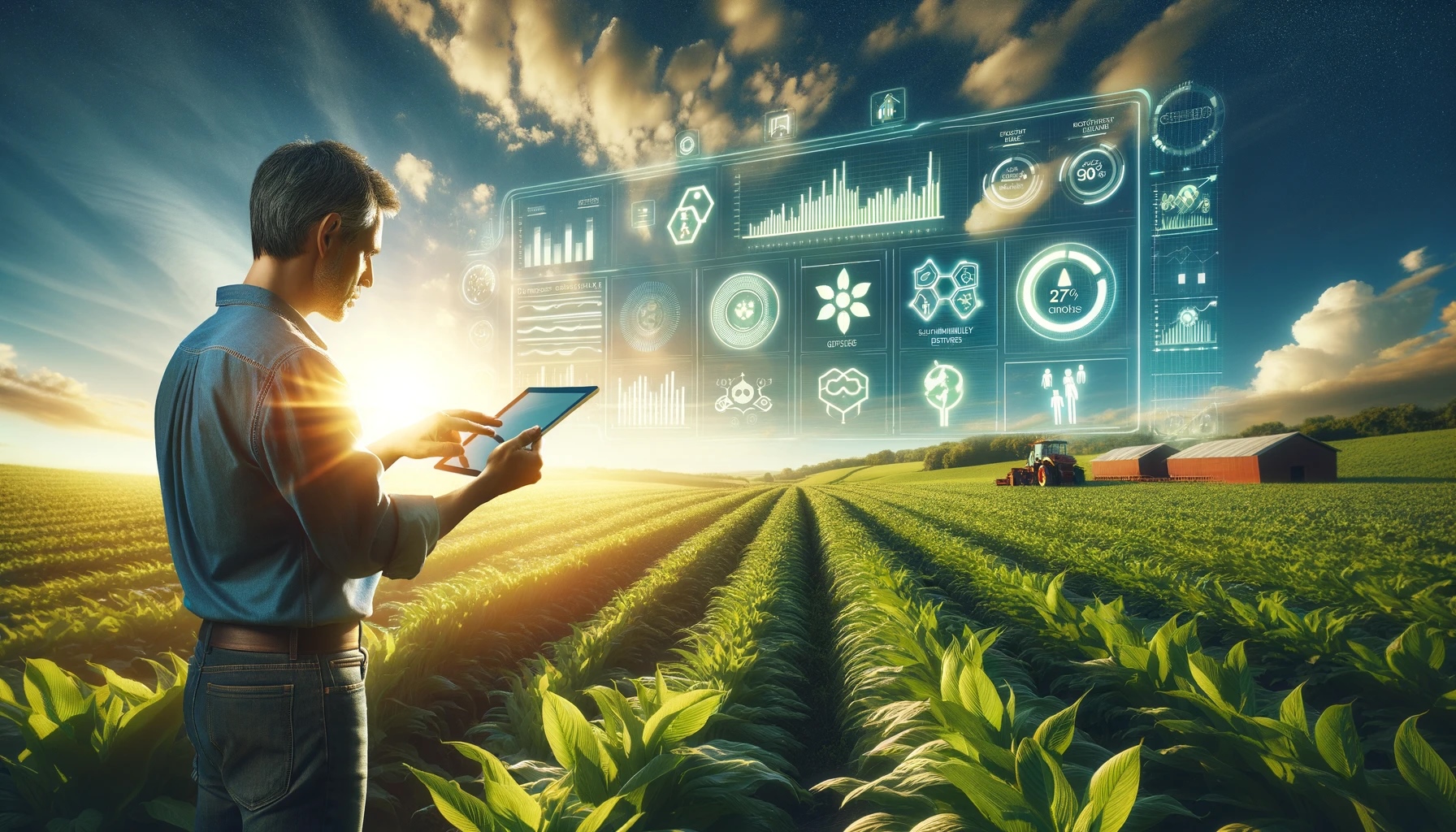Mar14

In a world grappling with climate change, the call for sustainability in the food and agriculture industries has never been more urgent. In my recent dialogue with Ethan Soloviev, Chief Innovation Officer at HowGood, on the Sustainable Supply Chain Podcast, underscored this imperative shift. As a thought leader navigating the intersections of agriculture, innovation, and sustainability, Ethan provided invaluable insights into transforming these critical sectors for the betterment of our planet.
The global food system, intricately linked with agriculture, is at the heart of numerous environmental issues, from water usage to deforestation. It's responsible for approximately 37% of global greenhouse gas emissions, with agriculture occupying nearly 50% of the habitable land. The pressing need to feed a growing population sustainably calls for innovative solutions and strategic interventions across the entire supply chain.
HowGood is part of this transformation, leveraging the world's largest database on food product sustainability. This powerful tool aids companies in making informed decisions by providing data on carbon footprints, water usage, biodiversity impacts, and labor risks. Ethan's work illustrates a pivotal trend: the shift from mere data collection to actionable sustainability insights. For example, companies like Danone and retailers such as Ahold Delhaize are using this data to reevaluate their products and operations, aiming for sustainability and regeneration.
This initiative is not just about environmental conservation; it's about creating resilient supply chains that can withstand and adapt to global changes. Sustainable practices in agriculture and food production offer numerous benefits, including reduced carbon emissions, enhanced soil health, and improved biodiversity. Regenerative agriculture practices, such as cover cropping and reduced tillage, sequester carbon in the soil, mitigating climate change effects.
However, the transition towards sustainability is not without challenges. It requires a concerted effort from all stakeholders, including farmers, food companies, policymakers, and consumers. Transparency and data accessibility are crucial for empowering these actors to make informed decisions. As Ethan pointed out, the development and adoption of artificial intelligence and machine learning technologies in this field hold the promise of scaling sustainability efforts like never before.
In addition to technological advancements, there's a growing need for policy frameworks that support sustainable practices. Initiatives such as the EU's Farm to Fork Strategy aim to make food systems fair, healthy, and environmentally friendly. However, global coordination and local action are necessary to ensure these policies translate into tangible results.
The transformation of the food and agriculture industries towards sustainability is not just an environmental imperative; it's a societal necessity. As we face the challenges of climate change, resource depletion, and population growth, the need for innovative solutions has never been greater. The work of Ethan Soloviev and HowGood exemplifies the kind of forward-thinking needed to drive this change.
For those interested in diving deeper into these critical discussions, I highly recommend listening to the full episode of the Sustainable Supply Chain Podcast featuring Ethan Soloviev. His insights, along with the strategies and technologies discussed, offer a roadmap for improving our world through sustainable food and agriculture practices.
The journey towards a sustainable future is a collective one, requiring the collaboration of individuals and organisations worldwide. As we continue to explore and implement innovative solutions, let's remain committed to transforming our food and agriculture systems for the health of our planet and future generations.
This post was originally published on TomRaftery.com
By Tom Raftery
Keywords: AI, Supply Chain, Sustainability
 Lateral Moves: The Most Overlooked Succession Strategy in Companies
Lateral Moves: The Most Overlooked Succession Strategy in Companies The Asset Play: Timing, Structure & Global Arbitrage
The Asset Play: Timing, Structure & Global Arbitrage  The Orchestra Needs a Conductor: Why Multi-Model Agents Require H2E Governance
The Orchestra Needs a Conductor: Why Multi-Model Agents Require H2E Governance The Role of Memory in Modern-day Business
The Role of Memory in Modern-day Business The Architectures of Permanence: A Comparative Analysis of the "Big Three" AI Strategies (2026)
The Architectures of Permanence: A Comparative Analysis of the "Big Three" AI Strategies (2026)